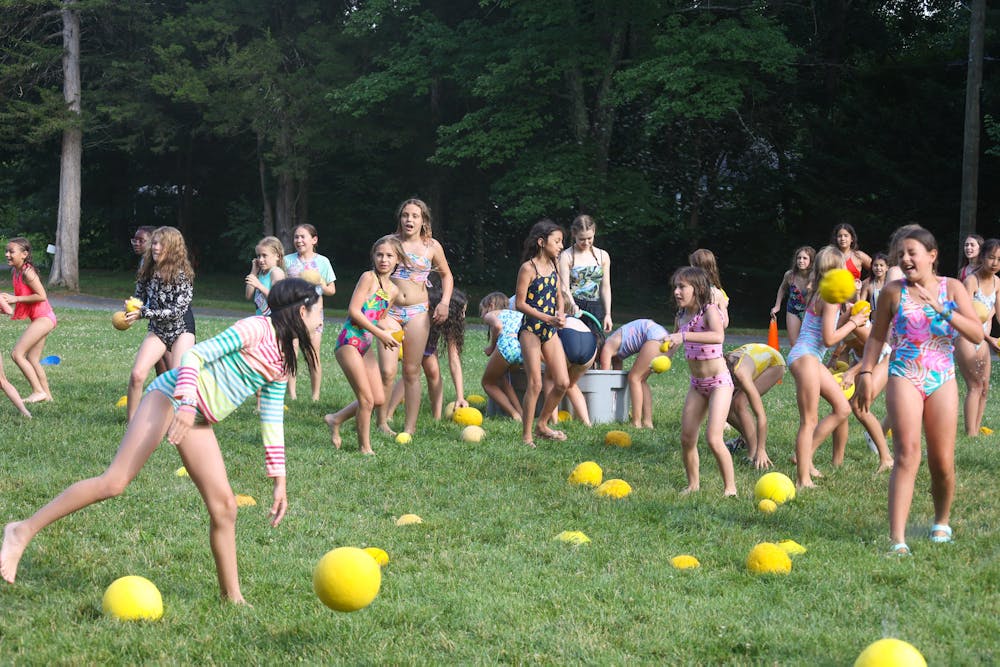
Nurse
With over 40 years of combined experience you can be assured that your child will be well cared for by our nurses
Health Forms
There are two health forms that the state requires us to have for your child(ren) to be able to attend camp:
- Health History (online form)
- Record of most recent physical and immunizations
Care Provided
The registered camp nurse will be on property during the camp day. The camp nurse will provide complete first aid care. In the event of an illness or injury that requires medical care above and beyond first aid, a parent will be notified. If the illness/injury requires immediate medical attention, the camp will contact emergency services to transport to an appropriate medical facility. If you feel that your child may need a higher level of support, please contact the office at 978-443-3100 to discuss.
Any camper who is unable to participate in all camp activities throughout the day should be kept at home. Children who have are symptoms of any infectious illness are to be kept at home. A camper should not return to camp unless they have been without a fever for 24 hours. If they are on antibiotics, these should be taken 24 hours prior to returning to camp.
All campers who enter the nurse’s office are recorded in a log, that includes their name, date, time of visit, purpose of visit and treatment given.
- A camper who comes to the nurse’s office and is mildly ill, has their temperature taken. They are allowed to rest on one of the cots, and are given a cool cloth and placed near a fan. If they have a fever, parents are called to obtain permission to administer Tylenol, as well as to come and pick their child up. If they camper doesn’t have a fever, parents may still be called to notify them of their child’s complaint, as deemed appropriate by the camp nurse.
- Medications are administered in the nurse’s office by the nurse. All medications must be in their original bottle from the pharmacy that states the campers name, the name of the medication, the doctors name and telephone number, dose, time of administration, strength of medication and any specific instructions. This must be accompanied by a note from the parents giving the nurse permission to dispense. All notes are filed and kept throughout the camp season. All medication administration is recorded in a log book, that states the campers name, time they received the medication, dose, route of administration and purpose.
Head Lice
Just a reminder that even though school is out and camp is on, head lice do NOT take a vacation. Please continue to be vigilant and check your child’s head frequently – especially if you observe scratching!
In accordance with the Massachusetts Department of Public Health, a child may not return to camp until treated and all nits are removed. Upon returning to camp, the camp nurse will verify that there are no nits.
If you have any concerns or think your child might have had lice – call the camp nurse prior to sending him/her into camp! Thank you for your understanding and cooperation.
Lyme Disease
This is a tick-borne disease. One of the most important preventative actions is a daily check for ticks. Look carefully for a “new freckle” inside and behind the ears, along the hairline, back of the neck, armpits, groin, legs, behind the knees and between the toes. Bug repellents containing DEET (10 – 15% for children) are also effective. For more information, please go to the Department of Public Health’s website or check with your local board of health and/or pediatrician.
Meningitis
The Mass DPH has asked all camps to furnish parents with information regarding Meningitis. NO vaccination is required. Click here to access the DPH Meningitis Commonly Asked Questions document
Emergency Care
In the event of an emergency, the camp nurse and directors are immediately notified. The nurse goes to the area, bringing a first aid kit. Nurse assesses if a call to 911 is needed, and it is placed. First aid is administered at the scene if needed, and the parents of the camper are notified. In the event of a possible serious injury, the camper is not moved and basic first aid administered until emergency help arrives.
The waterfront staff is certified in lifeguarding, CPR and basic first aid. They have specific emergency procedures they follow in the event of an emergency on the waterfront.
Counselors are notified which campers have life threatening allergies. In the event of a bee allergy, group counselors are given an Epipen, which they keep on their clipboards throughout the day. They are instructed how to use this in the event of an emergency prior to the start of camp. All Epipens for food allergies are stored in our Nurse’s Office.
A complete copy of our Health Manual is available upon request.